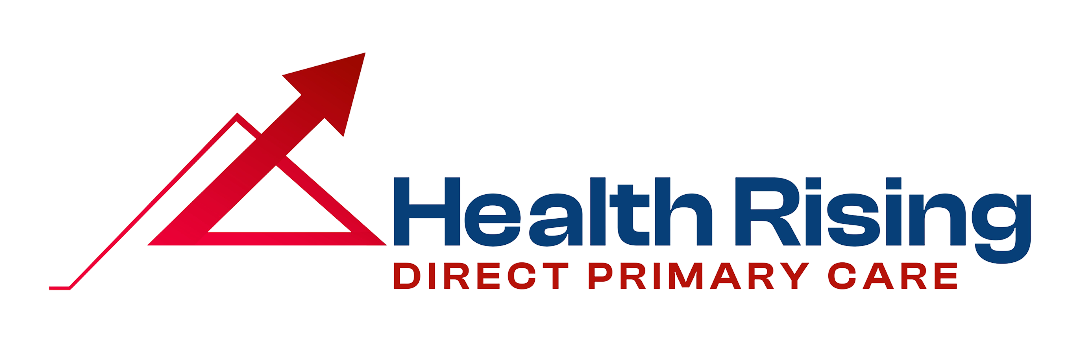When it comes to cancer, the message from conventional healthcare is often loud and clear: screen early, screen often, and screen everything. But at Health Rising DPC, we believe in a more thoughtful approach. The truth is, not every cancer screening leads to a longer, healthier life. Some screenings can bring unnecessary worry, overtreatment, and even harm. That’s why we guide our patients through a personalized, evidence-based plan that focuses on what truly matters.
Understanding which screenings are helpful and which ones are overused can save you time, money, and stress. It can also empower you to take control of your health in a way that supports long-term vitality, not just disease detection. In this article, we unpack what makes certain cancer screenings worthwhile, which ones are often misunderstood, and how lifestyle medicine can lower your risk more than any test ever could.
The Purpose of Cancer Screenings: Why Early Detection Matters
Cancer screenings are tools. They are designed to catch disease in its earliest stages, ideally before symptoms appear. But a screening test is not a diagnosis. It’s a snapshot, not a conclusion.
Many patients don’t realize that some screenings find cancers that may never grow, spread, or cause harm. This is called overdiagnosis. When overdiagnosis happens, it can lead to unnecessary biopsies, surgeries, medications, and ongoing anxiety. While some screenings save lives, others merely detect abnormalities that would never have impacted a person’s quality of life.
At Health Rising DPC, we believe in screening with purpose. That means choosing the right test at the right time for the right person—and skipping the rest.
Prostate Cancer Screenings: What You Should Know About PSA and DRE Tests
Prostate-specific antigen (PSA) tests and digital rectal exams (DRE) are the standard tools for prostate cancer screening. However, not every man needs them. PSA levels can fluctuate for many reasons, and abnormal results don’t always indicate cancer.
The potential downside of PSA screening is overdiagnosis. Some slow-growing prostate cancers would never become life-threatening, yet men may still undergo surgery or radiation that leads to incontinence, sexual dysfunction, and emotional strain.
Men in their 50s or older with a family history or other risk factors may benefit from discussing PSA testing with their provider. The key is shared decision-making. At Health Rising DPC, we help patients weigh the benefits and risks based on their unique situation.

Colon Cancer Screenings: Why Colonoscopy Remains the Gold Standard
Colon cancer screening is one area where the evidence is solid. Colonoscopy remains the gold standard for early detection and prevention. Removing precancerous polyps during the procedure can actually prevent cancer from forming.
Stool-based tests like FIT or Cologuard offer less invasive options. For individuals with average risk, these can be effective screening tools when done regularly.
Screening generally starts at age 45 and continues until around age 75, depending on overall health and personal risk. At Health Rising DPC, we also emphasize the role of lifestyle. A diet rich in fiber, regular movement, and minimal alcohol intake can all help reduce colon cancer risk naturally.
Breast Cancer Screenings: Tailoring Mammogram Recommendations to Your Needs
Mammograms are frequently promoted for women starting at age 40 or 50, but the data is mixed. While mammography can detect early-stage breast cancer, it also leads to many false positives and follow-up procedures.
For women with dense breast tissue, the test can be less reliable, and additional imaging may be needed. Some cancers found through screening may grow so slowly they would never have caused harm, yet the discovery can still lead to surgery, chemotherapy, or radiation.
This is where personalized care matters. Rather than following a blanket guideline, women should talk with their provider about personal risk, family history, and preferences. At Health Rising DPC, we develop individualized screening plans that support physical and emotional well-being.
Lung Cancer Screening: High-Risk Groups Only
Lung cancer is often aggressive and difficult to treat, making early detection valuable—but only for those at highest risk. That’s why low-dose CT scans are recommended only for adults aged 50 to 80 who have a history of heavy smoking.
For those outside this group, routine lung cancer screening does more harm than good. The risk of false positives and unnecessary follow-up testing outweighs the potential benefit.
Smoking cessation remains the most powerful way to reduce lung cancer risk. Our team at Health Rising DPC offers support for behavior change that makes a lasting difference.
Skin, Thyroid, and Other Cancer Screenings: When Are They Necessary?
Some cancers are over-screened in modern medicine. Skin checks are helpful when patients have a personal or family history of skin cancer, or new or changing moles. But full-body mole mapping for everyone often leads to unnecessary biopsies.
Similarly, routine thyroid ultrasounds and whole-body scans are rarely beneficial unless symptoms or risk factors are present. These tests frequently find benign nodules that lead to worry and overtreatment.
At Health Rising DPC, we focus on what your body is telling you, not what a screening machine might detect in a perfectly healthy person. If symptoms appear or family history raises concern, we pursue appropriate evaluation—but we don’t chase invisible threats.
Focus on Risk Reduction: How Lifestyle Medicine Reduces Cancer Risk
Cancer prevention is not just about tests. It’s about long-term habits that lower risk at the root. Many cancers are linked to chronic inflammation, insulin resistance, hormonal imbalances, and exposure to toxins.
That’s why lifestyle medicine is at the heart of everything we do. Prioritizing real food, consistent movement, restful sleep, and stress management is far more protective than most screenings.
We also guide patients away from harmful substances. Avoiding smoking, limiting alcohol, and reducing intake of ultra-processed foods all contribute to cancer prevention. With small, sustainable shifts, the body becomes more resilient against disease.
The Direct Primary Care Approach to Cancer Screening: A Personalized Method
One of the biggest advantages of Direct Primary Care is time. We don’t rush patients through visits or pressure them into one-size-fits-all screenings. Instead, we take the time to explain, listen, and support thoughtful decisions.
You don’t need more tests. You need a provider who knows you. Our model supports long-term health planning, not reactive care. And when screenings are needed, we coordinate them without delay, cost confusion, or insurance red tape.
Health Rising DPC gives patients the tools and information they need to stay healthy on their terms. That includes knowing when to screen—and when not to.

Conclusion
Prostate, colon, and other cancer screenings can save lives when used wisely. But overuse can create a cycle of fear and overtreatment that harms more than it helps. At Health Rising DPC, we believe the key is individualized care that puts people first. Instead of relying on blanket recommendations, we evaluate risk, talk through options, and prioritize prevention through lifestyle. Your body is not a ticking time bomb. With the right support, it is capable of thriving.
Cancer screening should be a tool, not a trap. With a personalized approach and a focus on what matters most, you can feel confident in every health decision you make.
Take control of your health today by scheduling a consultation with Health Rising DPC and working with us to create a personalized plan that supports your long-term well-being.













